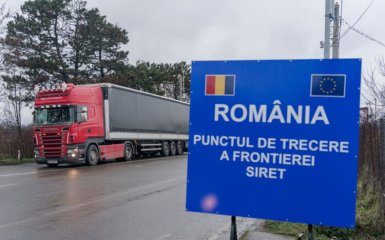Around 12:00 on January 15, farmers renewed the blocking of truck traffic in the direction of the "Siret" checkpoint, which is located opposite the Ukrainian "Porubne" checkpoint.
Romania farmers block the Ukrainian border again
Romanian farmers block the movement of trucks through the checkpoints "Siret" and "Vicovu de Sus" on the Ukraine border.
The State Border Guard Service of Ukraine reports this.
Around 12:00 p.m., farmers renewed the blocking of truck traffic in the direction of the "Siret" checkpoint, which is located opposite the Ukrainian "Porubne" checkpoint, the SBGS said.
Ukraine’s border service notes that blocking the Romanian "Vicovu-de-Sus" crossing point, opposite the Ukrainian "Krasnoilska" checkpoint, has also begun.
At the same time, the border guards point out that other types of transport, as well as pedestrians, are registered at both checkpoints according to the established procedure for entry and exit from Ukraine.
Farmers' protest in Romania: what is known
Romanian transporters and farmers, who spontaneously joined them, continue to protest for the sixth day in a row and seriously impede traffic.
On Sunday, Romanian farmers blocked the movement of trucks through the Siret checkpoint on the Ukraine border.
The day before, on Saturday, a similar blocking of traffic in the territory of Romania lasted for 6 hours.
In the evening, the Romanian farmers ended their blockade.

